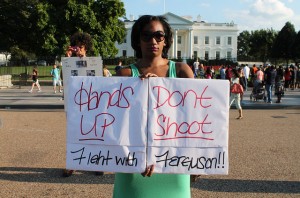
Only a year ago, jurors found the Chicago police department liable for the wrongful death of Aaron Harrison, a case that strikes a troubling resemblance to the shooting of Brown; Harrison too was an unarmed, 18-year-old African American male who was shot by a police officer. While the Independent Police Review Authority in Chicago, according to the Chicago Tribune, found that the shooting was justified in 2009, jurors in a civil trial disagreed.
While jurors awarded Harrison’s family with $8.5 million for his wrongful death, it took 6 years for justice to be served. However, it was the persistence of Harrison’s family that ultimately resulted in the city and police officer being held accountable for their son’s death. “They never gave up hope of justice and justice prevailed for them, the truth came out and the city was held accountable,” says Chicago-based lawyer Larry Disparti.
Outlined by the National Institute of Justice, most law enforcement agencies have specific policies that describe how a police officer may utilize a continuum of escalating actions to gain control of a situation. As such, lethal force may normally only be used when a suspect poses a serious threat to the police officer or to another person.
At the time of the Harrison shooting, as reported in the Chicago Tribune, police officials claimed that Harrison raised a handgun at the police officer who then shot Harrison to defend himself. However, five eyewitnesses disputed this claim, reporting that at no point did Harrison have a weapon until after he was already handcuffed. The circumstances appear to be closely related to Brown’s shooting; police officials claim that the shooting officer was seriously attacked and in danger of further injury, while eyewitnesses claim that Brown had his hands raised above his head.
Depending upon the circumstances of the shooting, then, the Ferguson police department may also be found to be liable for the wrongful death of Brown, as in the case of Harrison. As frustrating as it is, it may take a substantial amount of time and investigation to understand exactly what happened in the moments before Brown’s death. With that in mind, Disparti claims, “I think one of the lessons we can look to from the Harrison case is that people in Ferguson need to have faith in the legal system. It works.” While financial compensation will never account for the loss of life, it may serve as a statement against the injustices sustained by Harrison and his family.
Days after Brown’s death, a White House petition was created calling for police officers to wear cameras on their vests at all times, as reported by the Washington Post. Having already surpassed 100,000 signatures, the White House is now obligated to respond to the petition. The video evidence this policy would make available would likely have a twofold effect: police officers would be under greater obligation to adhere to the procedures of their police department, and definitive proof would be made available either affirming or disproving allegations of police misconduct.